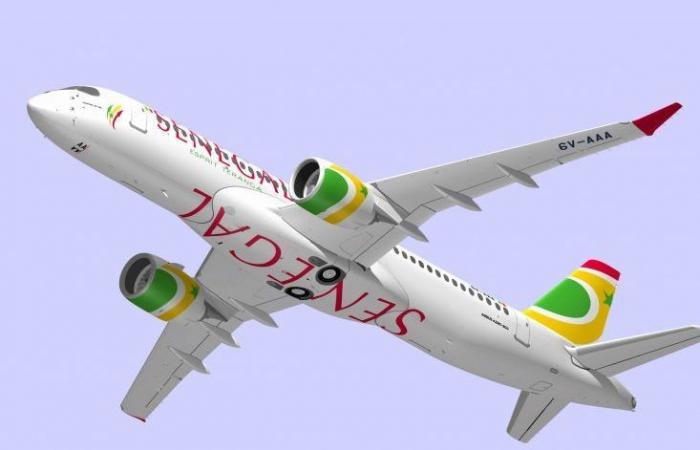(SenePlus) – In a significant development for West African civil aviation, Air Sénégal has just obtained the renewal of its Iosa (Iata Operational Safety Audit) certification until November 25, 2026. This renewal, effective from November 26, occurs in a particular context marked by a major incident that occurred earlier this year.
Iosa certification, a real gateway for international airlines, represents a rigorous guarantee of safety. According to information from Jeune Afrique (JA), this process involves the validation of no less than 1,057 checkpoints, covering eight essential areas of air operations, including maintenance and crew training. “A first face-to-face working meeting is followed by a certain number of discussions between the auditors and the company,” details the media, emphasizing the rigor of the process.
The initial obtaining of this certification in August 2023 had opened new perspectives for the Senegalese national carrier. The company was thus able to negotiate strategic agreements with several renowned partners: a code sharing agreement with Royal Air Maroc and Air Côte d’Ivoire, as well as an interline agreement with Air France allowing passengers to continue their journey to other destinations. other French destinations from Paris. However, Jeune Afrique specifies that to date, only the agreement with Royal Air Maroc is fully operational.
A major incident that raises questions
However, the renewal of certification comes in the wake of a serious incident. On the night of May 8 to 9, a Boeing 737-300 chartered by Air Senegal from the private company Transair went off the runway during a Dakar-Bamako flight, causing eleven injuries. The device in question, more than 30 years old and acquired at the end of 2023 from the Romanian company Tarom, was the subject of recurring criticism from passengers, as evidenced by the testimonies collected by JA.
This situation raises questions about audit procedures. A sector expert, quoted by the newspaper, provides crucial insight: “During their visit, the Iosa auditors do not enter the chartered planes, they simply check that the actor they control has carried out its own audit of the company he uses.
The investigation carried out by Jeune Afrique was unable to establish whether the Transair aircraft involved in the incident had the required certifications. Additionally, the exact timeline of the Iosa audit in relation to the incident remains unclear, with IATA having stated that “all data regarding this type of audit is confidential.”
Notable fact noted by the newspaper: according to data from Flightradar24, Air Senegal has stopped using Transair aircraft since May 13, suggesting a significant review of its charter policy.
The precedent of major accidents
Jeune Afrique recalls that other serious accidents in the recent history of African aviation have not led to certifications being called into question. The crash of the Ethiopian Airlines Boeing 737 MAX in March 2019 and that of Swift Air’s McDonnell Douglas DC-9-83 operated by Air Algérie in July 2014 did not affect the Iosa status of their respective operators. In these cases, the investigations concluded that there was a software failure for the first and an inappropriate reaction from the crew for the second.
The incident involving the Transair flight chartered by Air Senegal currently remains under investigation by the Senegalese Bureau of Investigation and Analysis, whose findings could have significant implications for charter practices in the region.






